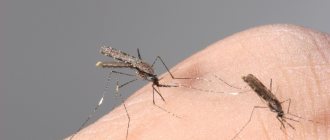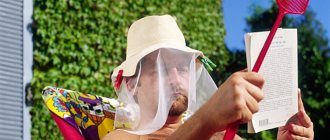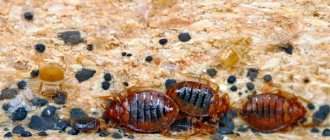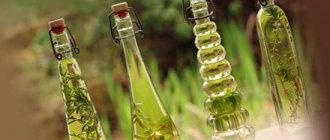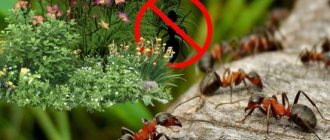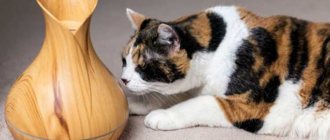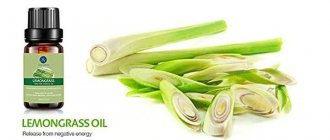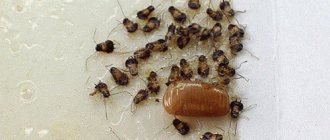Mosquitoes are annoying pests that not only irritate you with their buzzing, but also with their painful, itchy bites. Unfortunately, it is almost impossible to completely protect yourself from interaction with these insects. They are especially active in the autumn and summer, also in the spring - in the warm months, after the snow has melted and solar activity has increased. It’s difficult both in cities and outside of them.
Despite such an unpleasant neighborhood and a high probability of bites, it is still possible to reduce the risks.
For this, traditional methods are used. They are simple, cheap and do not pose any danger to humans. You can resort to the help of professional chemicals. They are effective and also safe for humans. Get rid of mosquitoes in your country house
Get rid of mosquitoes in your country house
Hit from the USA. A guaranteed way to destroy all mosquitoes on the site.
skeetervac.ru
Open ›
Next, we will look at what mosquitoes are afraid of and how to repel them.
Fumigants and repellents
Repellents and fumigants are chemical agents. Fumigants are divided into electrical and pyrotechnic.
Electric fumigators are devices that run on electricity. Repellent components are liquid or plates that, when heated, release chemicals that mosquitoes do not like. Manufacturers promise that after an hour there will not be a single insect left in the room with the fumigator turned on.
Advantages of the fumigator:
- No contact with skin;
- Ease of use;
- Availability;
- Low price;
- There are no obvious negative effects on health.
Flaws:
- Short service life;
- Irritating strong odor;
- Cannot be used in a home with children or pregnant women;
- Headache and allergies may occur.
If mosquitoes are not afraid of the fumigator, you may have bought a fake or it is broken. In small doses, fumigants repel insects, but in large doses they kill.
Pyrotechnics are plates that need to be set on fire. Spirals are used in the yard, on the site, during recreation. If they are used in the home, they may cause headaches.
Most mosquito repellents contain diethyl phthalate, which is effective against insects but is toxic. When using them, you must follow the rules and safety measures.
- The repellent must be applied according to the rules recommended by the manufacturer.
- Lotions and creams are intended for application to the skin and last for an hour and a half.
- A safe repellent is a pencil. Cases of an allergic reaction are rare, but the smell is unpleasant.
- Bracelets soaked in natural oils are one of the safest ways to repel mosquitoes.
- Scented candles will repel insects; mosquitoes do not like their smell; they can be used at home or outdoors.
What else attracts blood-sucking insects?
Without confirming the sympathy of female mosquitoes for a certain blood type, scientists note: there are other factors that are more likely to influence the “favor” of insects:
- age of the person – young people are bitten more often than older people;
- hemoglobin level – a person with anemia is less likely to be liked by a mosquito;
- blood composition - mosquitoes are attracted to people who have a lot of B vitamins in their bodies.
Mosquitoes may be attracted to the dark colors of your clothes
Also, blood-sucking insects willingly flock to:
- The smell of sweat. The component that annoying mosquitoes like most about it is lactic acid, which is released by muscles when moving.
- Alcoholic amber.
- Hair balm scent.
- The smell of certain medications, such as heart medications.
There is a high chance of being bitten by a person with a high body temperature (from illness or intense movement), as well as by pregnant women. During pregnancy, women exhale more carbon dioxide, which attracts insects.
Advice. Remember that mosquitoes can see colors. Most willingly, they flock to a “victim” dressed in an outfit of red, black and dark blue tones. Their least favorite color is yellow.
Ultrasonic repellers
Ultrasound against mosquitoes has been used recently. The operating principle of the devices is based on ultrasonic waves. Are mosquitoes afraid of ultrasound? The opinions of scientists are divided; 100% effectiveness has not been proven. But, some models really work. Devices that are plugged into the network, battery-powered, and portable devices are sold.
When purchasing a device, keep in mind that ultrasound works at a distance of up to 5 meters if it is a stationary model and up to two meters for portable models.
Ultrasound is not dangerous for humans, since we cannot hear it. What frequency are mosquitoes afraid of? The creators say that bloodsuckers cannot withstand a frequency of 30 kHz. And the devices are produced with a floating frequency, from 4 to 40 kHz. It is believed that mosquitoes are afraid of the sound that imitates the flight of dragonflies, and this is 30 kHz.
Melissa
adenium-doma.ru
Unlike citronella, lemon balm can survive the winter in open ground. We are used to brewing leaves as an additive to tea and do not know that they can be used to repel mosquitoes. Melissa grows quickly, spreads on its own, and requires no care. Seed the area and make sure that the grass does not take over the entire garden. It will also look great on the windowsill and fill the room with the smells of mint and lemon.
Other properties of lemon balm:
- has a sedative and relaxing effect;
- helps with digestive disorders;
- relieves muscle spasms.
Traps
The principle of operation of traps is to attract insects and destroy them. The bait for attraction can be one or several in a complex. Gas, heat, and light act as baits. Mosquitoes are not afraid of light and fly towards the heat emitted by the lamp. In general, bloodsuckers do not care about light or darkness; they orient themselves using not only the organ of vision.
Gas traps imitate human breathing; insects sense gas at a distance of up to 50 meters and rush to the device.
Propane exterminators are used on site. H20 traps can be used indoors and outdoors. The disadvantage of gas devices is the regular purchase of gas cylinders.
Electric traps with a lamp can be used outdoors and indoors, but due to their high price they are not in high demand. Devices with a fan or models that emit carbon dioxide are effective.
Water traps are effective in the home and yard. They are equipped with a special container where dead insects are disposed of. Are mosquitoes afraid of water? No, they lay eggs in water. But adults drown in liquid. Periodically you need to add and change water.
Light traps are inexpensive, but are ineffective if it is an ultraviolet lamp. Mosquitoes fly towards heat, not light. It’s good if, along with light, the device produces heat.
Marigold
dic.academic.ru
Traditional city flowers. Drives away mosquitoes and other insects. Capable of growing along busy highways, they will survive even after planting by inept hands. Plant them around the country house so that mosquitoes do not want to fly to visit.
Other properties:
- disinfect the soil around their growth sites;
- used as a seasoning for meat dishes;
- strengthen the immune system.
What are mosquitoes afraid of - folk remedies at home
What smell are mosquitoes afraid of?
Folk remedies are effective if you know what smells mosquitoes, flies, midges, ticks and other insects are afraid of. Many aromas are pleasant to humans, but unbearable to bloodsuckers.
In a house or apartment, mosquitoes are afraid of the smell of certain plants.
- Elder. Finely chop the leaves and place them in containers throughout the apartment. When the leaves dry out, you need to replace them with fresh ones.
- Bird cherry. Mosquitoes will be repelled by bouquets of fragrant branches arranged in vases.
- Geranium. Well repels many types of insects.
- Conifers. You can use cones and tree branches.
- Fish fat. You can coat exposed skin with it; insects will not bite, since the smell is unpleasant to them.
- Soy sauce. If you pour the sauce into a cup and place it near the bed, protection from bloodsuckers is provided.
- Smoke. An easy way to repel insects at a picnic is to light a fire. Mosquitoes are afraid of smoke. Why? It's all about the strong, unpleasant smell for them. If you throw spruce branches into the fire, mosquitoes will be even more afraid of such smoke.
How to fight mosquitoes at home
Vanillin
Mosquitoes are afraid of the smell of vanillin because the aroma does not allow them to smell a person. You can use vanilla to make a mosquito repellent spray or cream. For one packet of vanillin, take a liter of water and mix the ingredients. Using a spray bottle, apply the product to skin and clothing.
Add vanillin powder to the baby cream, mix and apply to exposed skin. This method of protection is suitable for children.
What essential oils are mosquitoes afraid of?
Essential oil is a good way to protect yourself from pest bites. It can be used outdoors and at home. A few drops of oil should be applied to the points where the pulse beats.
Do not apply essential oil to clothing; it will leave greasy marks on the fabric.
What essential oils are mosquitoes afraid of? They don't like the smell:
- Lavender;
- Eucalyptus;
- Geraniums;
- Carnations;
- Citronella;
- Anise;
- Camphor oil.
To protect against bites, add essential oil to the cream and lubricate the skin. In this case, the risk of allergies is minimal.
For people with sensitive skin, the method with essential oils is not recommended.
Mosquitoes are also afraid of the smell of “Star”. Before using the balm, do a skin sensitivity test.
An aroma lamp will save you from mosquito attacks at night if you add a few drops of essential oil.
Ammonia
Are mosquitoes afraid of alcohol? Yes, because it has a pungent odor, especially ammonia. Soak a cloth in alcohol and wipe the window sills, window frames, and doors. A person will stop smelling after a few minutes, but for insects this is a real obstacle.
Garlic
Mosquitoes are afraid of the smell of garlic. You can prepare a spray or balm based on it. To prepare the spray, take a head of garlic, add a glass of water and cook for 5 minutes. Balm is crushed garlic and essential oil. It is important that the balm does not get on the mucous membranes or in the eyes.
Vinegar
The smell of vinegar repels bloodsuckers; they are afraid of it. Spray your home. Mix equal amounts of water and apple cider vinegar and pour the mixture into a spray bottle. To enhance the effect, add a drop of eucalyptus essential oil.
Basil
greenness.ru
Two in one! Seasoning and mosquito repellent. Basil has many varieties that differ in shape and color, so you can also decorate a window sill or garden bed with unusual combinations. The plant is an annual plant and is quite easy to grow.
Other properties:
- excellent seasoning for many dishes;
- during the flowering period, attracts pollinating insects to the garden;
- used to treat ARVI.
How to prevent the arrival of uninvited guests
Mosquitoes breed in stagnant water, leaving clutches of eggs there. If you pour coffee grounds there, the eggs will float and the larvae will not hatch.
To prevent insects from flying into the apartment, it is worth installing mosquito nets on the windows and vents. Hang light curtains on the door. Place gauze on the ventilation holes.
What plants are mosquitoes afraid of?
- elderberry and bird cherry,
- geranium and chamomile,
- lavender and mint,
- basil and tomatoes.
Such dried bouquets are hung and laid out in rooms, secured above the doors.
A bed or pot of spicy basil located nearby will help repel mosquitoes from a door or window. Decoration and use. The dried plant is placed in clothing pockets so that it is easy to work outdoors.
The smell of lavender planted in a flower pot and placed near the door or window will repel mosquitoes.
The best remedy for repelling mosquitoes and ants, flies and fleas, and mice is considered to be dried mint, but not marsh mint.
The scent of fresh elderberry branches will keep biting mosquitoes out of your home. It is also useful to plant a bush next to a window or door in the area.
The smell of a tomato growing in a pot on the window will help repel squeaking insects.
Fruit fumigator. Turn the pulp of half a lemon into a hedgehog by inserting 10-15 pieces of spicy cloves. You can replace lemon hedgehog with Carnation cologne.
If you use electric fumigators, you will have to open the windows, since the fumes of the toxic substance are harmful to humans. The finished liquid can be replaced with eucalyptus extract - a natural repellent, non-toxic and harmless.
Rosemary
fotokulinar.ru
Methods for using rosemary are usually concentrated in cookbooks. But in a flowerbed, the plant behaves just as well as pennyroyal: it repels mosquitoes and attracts butterflies.
Other properties:
- Rosemary oil is a good preservative;
- decoctions and infusions improve the condition of oily skin;
- helps improve memory.
Electrofumigators
These devices help repel insects indoors. Electric fumigators are designed for a specific area of influence. A container with liquid or a plate is installed in the device.
When heated, they release insecticide.
The active substance has a nerve-paralytic effect on mosquitoes. After a few minutes they become lethargic and soon die. The devices are effective and safe, but the substances in them sometimes cause allergies. The instructions do not recommend staying closer than 1 meter from a working fumigator.
How to get rid of mosquitoes in your summer cottage
Mosquito larvae can be killed using both biological and chemical means. Since mosquitoes lay larvae in water, and you have standing water on your property (pond, rainwater storage tanks), we will add special live bacteria there. You should start filling them early, from the beginning of April, and continue until the end of summer. Scientists at the University of New Jersey recommend using bacteria containing Bacillus thuringiensis (BTI) to kill the digestive systems of mosquito larvae.
Anti-mosquito bacteria in tablets and granules
These are three identical products, with the same active ingredient - Bacillus thuringiensis subspecies israelensis (BT.I.). This is a biological regulator of the mosquito population. The products differ only in shape: round tablets resembling donuts, granules and bags with crushed drug. The first two products are the best selling products for getting rid of insects on the American Amazon and are time-tested: 90% positive reviews (4.6 out of 5 stars) and more than ten years of experience in the anti-mosquito products market speak for themselves
Mosquito control products kill the larvae and prevent them from reappearing for 30 days. This method is 100% natural, organic and environmentally friendly. You can place the product in a pond, birdbath, flower pot, storm drain, rainwater collection pond, barrel under a drain, drainage, just a deep puddle - or in any body of standing water, even tree stumps and roof drains, etc. etc. But this is not enough - in order for BTI bacteria to work best, you need to remember several important conditions:
- use such a biological regulator in the evening or closer to night - scientists believe that direct sunlight destroys bacteria;
- The bacteria have a narrow spectrum of action and will only help in the fight against mosquito larvae, black flies and fungus gnats (sciarids).
Let's look at the effect of live bacteria on mosquitoes using Mosquito Bits as an example. Manufacturers claim that all existing mosquito larvae will be killed within 24 hours before they grow into full-fledged mosquitoes, which means they will never hatch. In practice, destruction often occurs much faster: here is one review of Mosquito Bits: “My son and I tested the product by taking a 20-liter bucket full of live mosquito larvae. We put in maybe half a teaspoon of granules and all the larvae were dead within three hours.” By the way, the manufacturer does not indicate how often the portions of granules need to be renewed, but scientists advise doing this regularly, once every 7-12 days, following the dosage instructions of 1 tsp/2.3 sq.m. water surface.
Experience shows that the bacteria are truly safe for pets and wild animals, many users allow their dogs to drink water from ponds treated with bacteria, and the active ingredients do not affect the health of rabbits, squirrels and other animals living nearby.
Many users consider bacteria to be a 2-in-1 tool: it can be used both as an express means to kill larvae and for prevention. As a preventive measure, bacteria begin to be used on large sources of standing water even before the onset of mosquito season, namely in April. Mosquito Dunks & Bits Price: From $5.80
Best Chemical Growth Regulators to Kill Mosquito Larvae
An alternative to bacteria is Insect Growth Regulators (IGR) . Among the safe IGRs that experts from the California Department of Public Health advise to use is methoprene. Scientists say that, like Bti, methoprene is safe for people even if it gets into drinking water.
On the American Amazon you can find several products containing methoprene. One such product is Altosid Pro-G Mosquito Larvicide. This is not a concentrated IGR solution, like other similar products, but granules. As the manufacturer promises, they “prevent the appearance of mosquitoes, stopping their reproduction even before adult biting individuals emerge.” The package for $34.24 contains 1.2 kg of granules, which will cover up to 500 sq.m. Even if you use them sparingly, the effect is visible within 24 hours. Even users in Florida's "mosquito kingdom" praise its effectiveness (“just remember to spray it monthly and don't forget about your gutters!”)
There is another powerful IGR based on pyriproxyfen (also known as Nilar), which is used in Africa to control mosquitoes that carry dengue fever and malaria. It's also sold on Amazon, but we don't think you'll need such a strong chemical. Although it is approved by scientists for use in drinking water, it is more toxic. Pyriproxyfen is almost 40 times more potent than methoprene against some types of mosquitoes. This concentrated liquid must be diluted at the rate of 30 g per 4.5-5 liters. – ultimately 1.8 kg. enough for about 560 sq.m. Worth from $17.18
Remember: mosquito larvae can be found anywhere, they don’t necessarily need a pond or swimming pool to do so! “Any standing water, even a small puddle, can serve to support a population,” says Jack D'Angelis, an entomologist at Oregon State University. He advises, “Make sure gutters are properly drained and flower pots and gutters are empty.”
